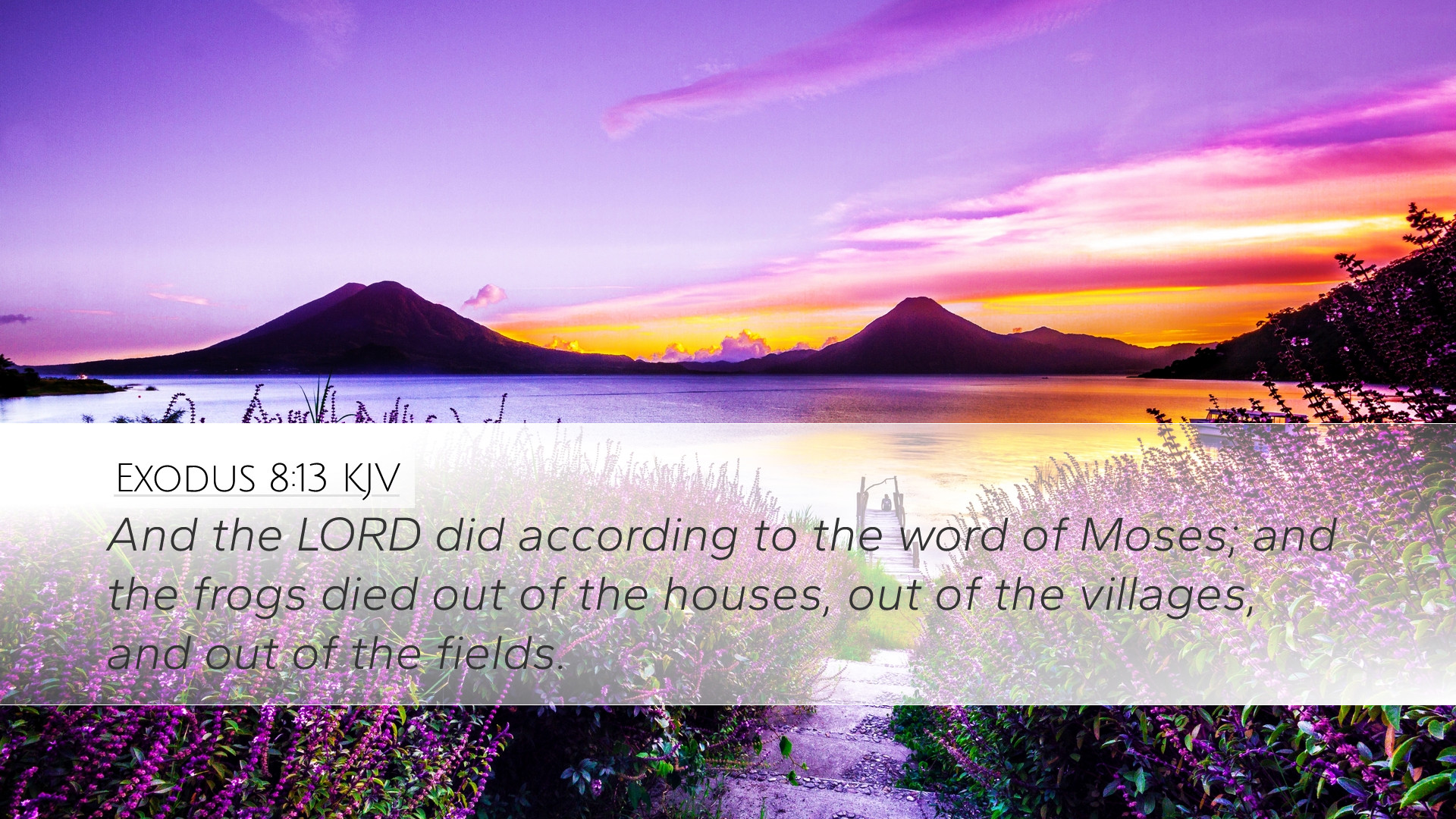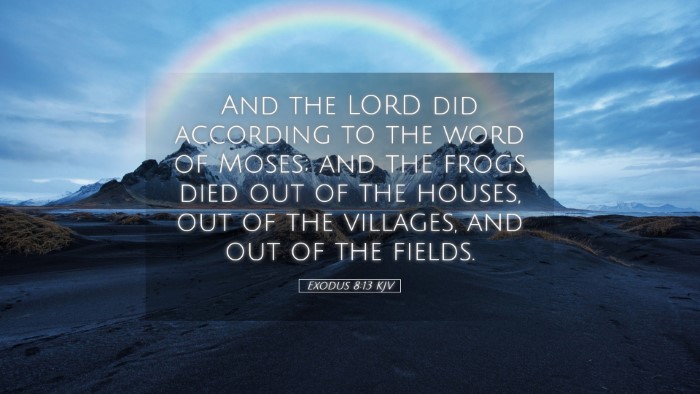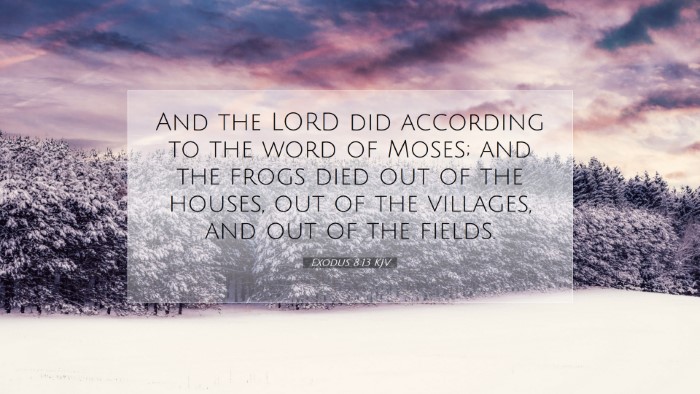Exodus 8:13 Commentary
Verse Context: Exodus 8:13 states: "And the Lord did according to the word of Moses; and the frogs died out of the houses, out of the villages, and out of the fields." This verse is situated within the narrative of the Second Plague of Egypt, where God afflicts the land with overwhelming numbers of frogs as a judgment against Pharaoh's refusal to let Israel go. The eradication of frogs signifies not only God’s power over creation but also His responsiveness to the intercession of Moses.
Theological Insights
This verse demonstrates the profound truth that God operates through human intercession. Moses acts as the mediator between God and Pharaoh, illustrating a Christological type, where Christ serves as the ultimate mediator. The phrase "the Lord did according to the word of Moses" emphasizes the authority bestowed upon Moses and reflects God's willingness to respond to the prayers and words of His chosen servants.
Exegetical Analysis
1. The Divine Authority: The action taken by God at Moses' word shows His sovereignty. As noted by Matthew Henry, this indicates that Moses, though only a humble servant, was part of God's divine plan. God’s response reinforces His power over creation and the futility of Egypt’s gods, which were associated with fertility and frogs.
2. The Plague's Purpose: This plague was not merely a display of power; it served a pedagogical function for both the Egyptians and the Israelites. Albert Barnes posits that the frogs, once a source of embarrassment for Pharaoh and a nuisance to the people, ultimately became instruments of God’s judgment, culminating in their judgment as well. The decay of the frogs would produce an overwhelming stench, illustrating the consequences of disobedience.
3. The Significance of Moses' Role: Moses’ successful intercession is vital for understanding prophetic roles in scripture, mirroring Christ’s work in the New Testament. Adam Clarke emphasizes that this moment highlights the assurance God provides in responding to genuine petitions. The outcome shows that God listens to the pleadings of those who act in alignment with His will.
Application for Today
Pastors and theologians can draw significant lessons from Exodus 8:13 in their ministry. The passage emphasizes the necessity of prayer and intercession. Just as Moses stood in the gap, so should the modern believer. Effective ministry today often reflects God's intervention in response to earnest prayers.
Practical Considerations:
- Prayer Life: Encourage a commitment to intercessory prayer, emphasizing God’s power to effect change.
- Understanding God’s Sovereignty: Teach that while God can act unilaterally, He often invites His followers to participate in His plans through prayer.
- The Role of Leaders: Highlight the importance of leaders who earnestly seek God and advocate for those who are suffering, just as Moses did for the Israelites.
Reflection on God's Justice and Mercy
Exodus 8:13 reflects God’s justice in dealing with sin while simultaneously showcasing His mercy. The removal of the frogs is an act of relief for the Egyptians, albeit after their stubborn refusal to heed God's word. It invites contemplation on how divine judgment and mercy coexist in the broader narrative of scripture.
Conclusion
In summary, Exodus 8:13 is rich with theological implications about divine authority, human intercession, and the nature of God’s relationship with His people. As believers engage with this text, they are reminded of the active role they can play in invoking God's intervention not only in their lives but also in the lives of others. The study of this passage encourages a deeper reliance on God’s sovereignty alongside an earnest commitment to prayer.


